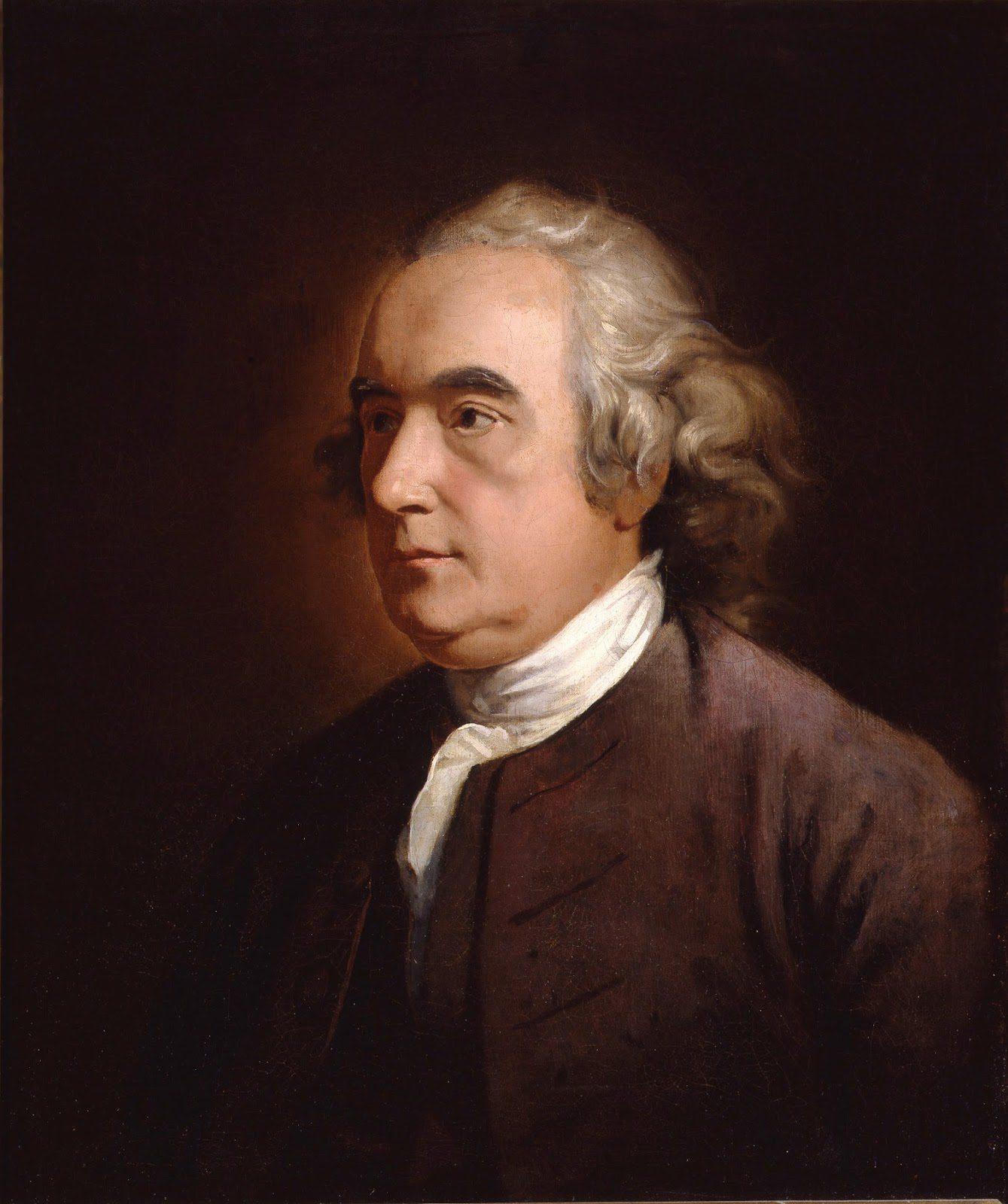 |
| Dr Charles Lucas, portrait by Thomas Hickey. (Royal College of Physicians of Ireland) |
Dr. Charles Lucas is remembered more for his political activities than for his medical accomplishments. A native of Clare County, Ireland, in 1713 he was born into a family that had benefited from Cromwell’s victory by acquiring nearly a thousand acres of land from dispossessed Catholic land owners. As a young man he showed literary promise by publishing several articles describing the beautiful area of his place of birth, its caves, flora, and local habitants. His family fell on hard times and moved to Dublin where he was apprenticed to an apothecary who described him as sober and honest but a little petulant. In 1735 he was admitted to the guild of Barbers and Surgeons, to whom the apothecaries were attached. One year later he opened an apothecary shop but almost immediately incurred the wrath of his colleagues by publishing a pamphlet deploring some of the abuses of how medications were prepared and fraudulently sold to the public. His action resulted in the passing of a drugs act authorizing the Royal College of Physicians of Ireland to inspect apothecaries’ shops and destroy adulterated or inactive drugs. But his lobbying incurring the enmity of his colleagues in the profession and perhaps neglect of his professional duties, his business failed and he turned his attention to local politics. In 1741 he was elected to represent the barber-surgeons’ guild in the lower house of the Dublin corporation.
Dublin at the time was governed by a bicameral Dublin Corporation. Its lower house was constituted mainly by representatives of the Protestant trade guilds and its upper house by autocratic aristocratic aldermen. For several years Lucas campaigned to promote the rights of the commoners and guilds. The aldermen repeatedly vetoed his re-election to the corporation. He was involved in a political struggle that eventually led to his being condemned as an enemy of the country for publishing sedition and, in October 1749, he was forced to flee to England.
In London he at first continued to write about the affairs of Ireland, but not achieving any marked success he returned to medicine. To acquire medical qualifications he studied in Paris and graduated MD from the University of Rheims in 1751. He then visited the baths and mineral waters in Germany to study their medicinal and chemical properties and in 1752 was awarded a doctorate in medicine from the University of Leiden in the Netherlands. Continuing to study and analyze the properties of various spas, published in 1756 an Essay on Waters in which he expounded his views on the therapeutic value of spas and baths. He spent time analyzing the water sources and spas in England and the continent, recommending different kinds of baths – hot or cold, simple or medicated, some depending on what disease was being treated and even on the season. He advocated establishing bath or water hospitals that would be opened to the poor and offer them light, simple diets, and clean beds. He focused especially on the treatment of rheumatism and gout, of which he had suffered for many years and which eventually crippled him. His activities led him into a quarrel with the medical faculty at Bath for infringing onto their territory. In 1759 he was admitted as a licentiate to the Royal College of Physicians of London thus achieving the three possible ways in which one could practice medicine in Britain: as an apothecary, a surgeon, and a physician.
At the ascension of King George III in 1760 the political climate changed, and he was pardoned and able to return to Ireland. In 1761, he was elected member of the parliament in Dublin. Using that position he advocated constitutional reform, promoting a variety of measures beneficial to the public such as preventing the exportation of grain, opposing the augmentation of the army in favor of establishing a militia, and preventing arbitrary punishments in the army. He became grave and dignified, losing that turbulent and quarrelsome quality that had characterized his youth. He continued in parliament until 1771, dying at the age of fifty-eight and remembered as a patriot who stood up for the rights of the common people.
GEORGE DUNEA, MD, Editor-in-Chief.
Summer 2016 | Sections | Physicians of Note

Leave a Reply